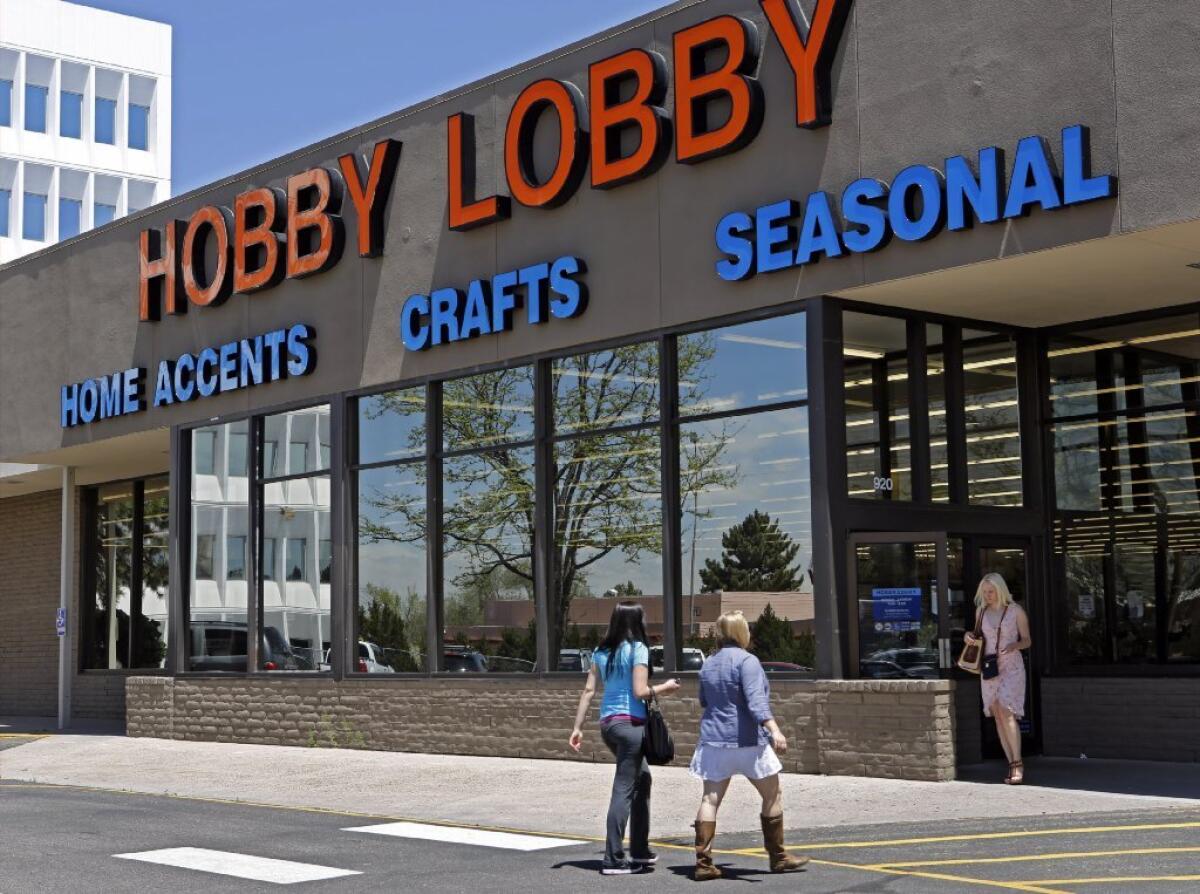Supreme Court to rule on whether corporations pray

- Share via
To no one’s profound surprise, the Supreme Court has agreed to take up the question of whether the Affordable Care Act’s mandate that health plans cover contraceptives violates the religious freedom of some corporations. The court accepted two cases brought by families that contend their religious objections to certain contraceptives flow through to their family companies, and therefore can be imposed on their employees.
Anticipating that the issue would land in the laps of the Big Nine, we examined the issue back in October. At the heart of the cases -- known informally as Hobby Lobby and Conestoga Wood, after the plaintiff firms -- is an effort to expand the definition of corporate “personhood” to cover the practice of religion. Federal appeals courts are split on the issue, which is why the Supreme Court has interested itself. Oral arguments are expected to be scheduled for March.
The Supreme Court’s most notable expansion of corporate “personhood” rights was the infamous Citizens United case of 2010, which granted corporations the equivalent of free-speech rights in election law. The decision has helped to open the floodgates to billions of dollars in self-interested corporate cash in political campaigns.
Numerous commentators question whether the principles in Citizens United can easily be applied to religious observance, which is protected by the 1st Amendment and also by the Religious Freedom Restoration Act of 1993, which was designed to limit government’s application of rules and regulations on persons practicing their religion.
The most succinct challenge to the idea came from U.S. District Court Judge Robert Jonker of Michigan, who denied an injunction against the contraception mandate requested by Autocam, another company whose owners professed a religious aversion to conception coverage. Jonker’s ruling was upheld in September by the U.S. 6th Circuit Court of Appeals. Although Autocam isn’t one of the cases taken up by the Supreme Court, it’s closely linked to those that were.
Jonker found no evidence that “a secular for-profit corporation has a First Amendment right of free exercise of religion.” He observed that the ACA’s contraception coverage requirement is “neutral,” in that it targets no particular religion or observance, and that it serves a “compelling government interest.”
He also noted that Autocam doesn’t forbid its employees to buy contraceptives with either their wages or a $1,500 health savings account it provides to all workers. Implementing the coverage mandate, he found, leaves the decision to use or not use contraceptives “in exactly the same place: namely, with each employee, and not the Autocam plaintiffs.”
He also put his finger on a principle often overlooked in the debate over corporate responsibility: the corporate form affords its users considerable benefits, such as limited legal liability -- and that brings obligations along with benefits. What the Hobby Lobby, Conestoga, and Autocam families are asking is to reap the benefits of incorporation but shed the obligations of operating in the secular world. The issue before the Supreme Court is whether they should be permitted to have things both ways.
More to Read
Inside the business of entertainment
The Wide Shot brings you news, analysis and insights on everything from streaming wars to production — and what it all means for the future.
You may occasionally receive promotional content from the Los Angeles Times.











